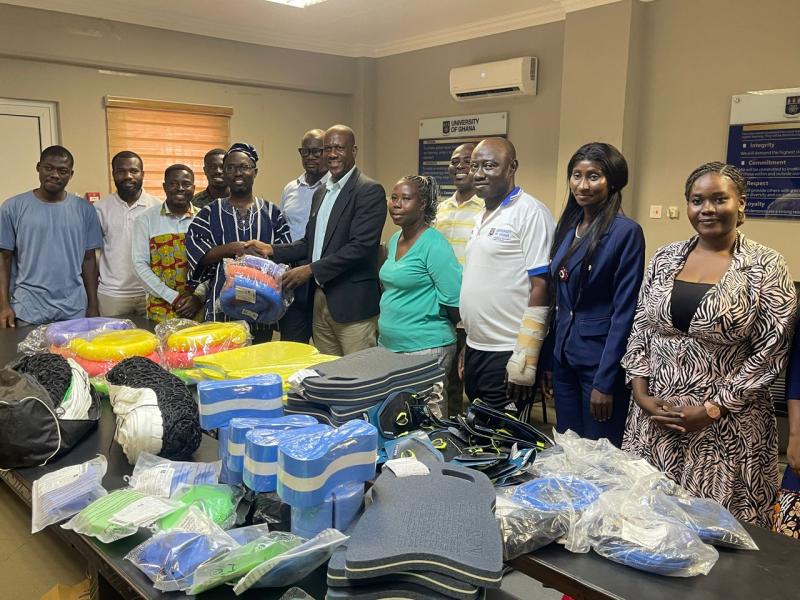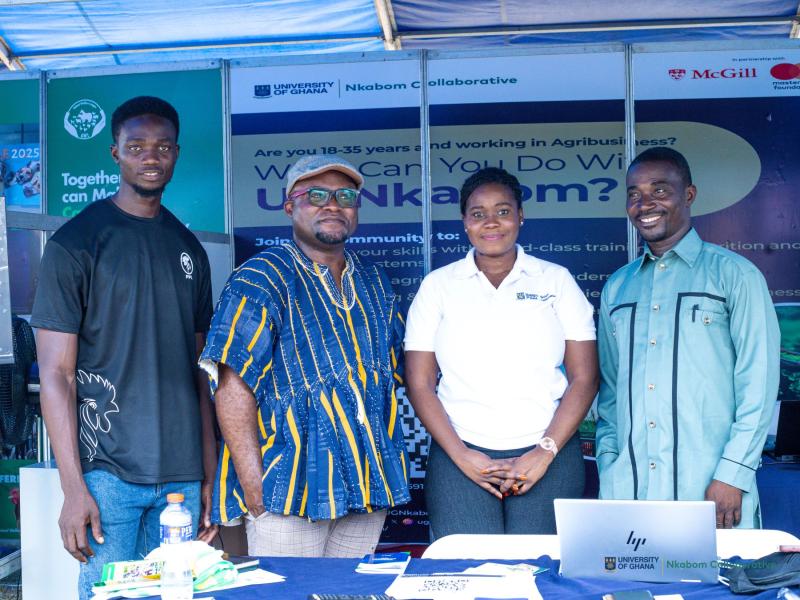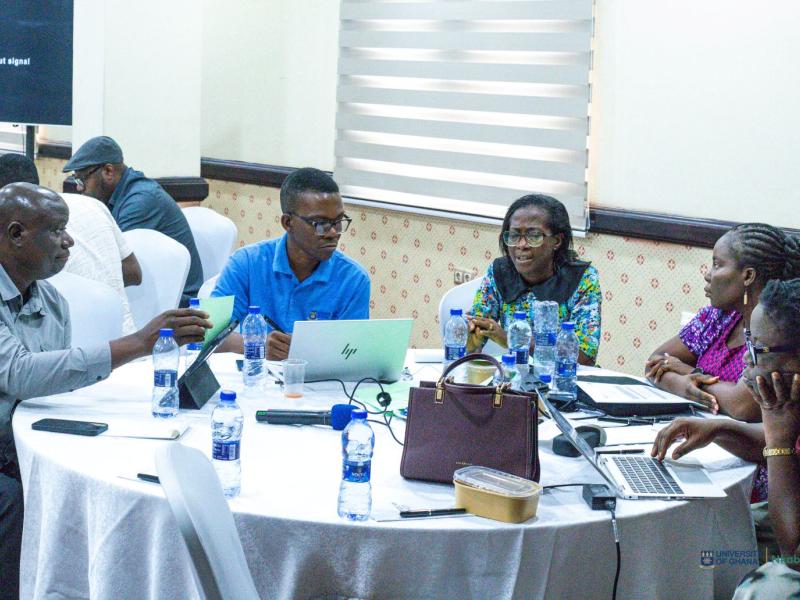Regulatory Agencies Urged to Rethink Service Delivery to Support Agrifood Startups
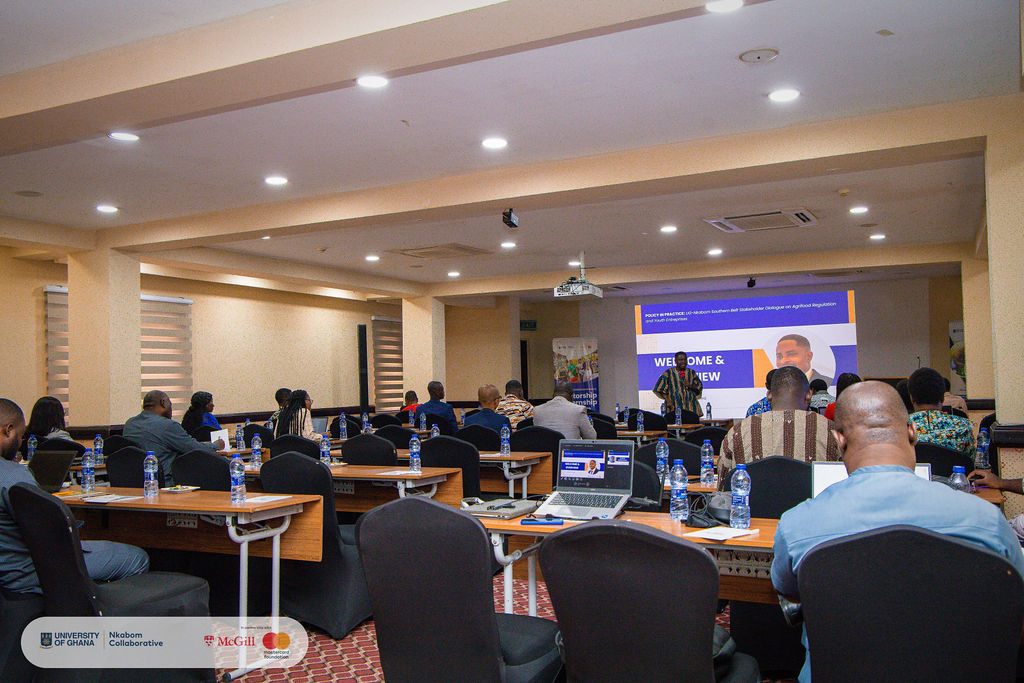
The call was made at the Southern Belt Stakeholders’ Dialogue hosted by the Entrepreneurship Pillar of the UG Nkabom Collaborative in Accra. The dialogue brought together key officials from key regulatory agencies including SSNIT, the Ghana Revenue Authority (GRA), Food and Drugs Autority and the Environmental Protection Agency (EPA). Others were the Ghana Standards Authority and the Office of the Registrar of Companies. The Dialogue was part of broader efforts by UG Nkabom to bridge communication gaps and foster strategic alignment between regulatory institutions and the new wave of agrifood entrepreneurs driving transformation in Ghana’s food systems.
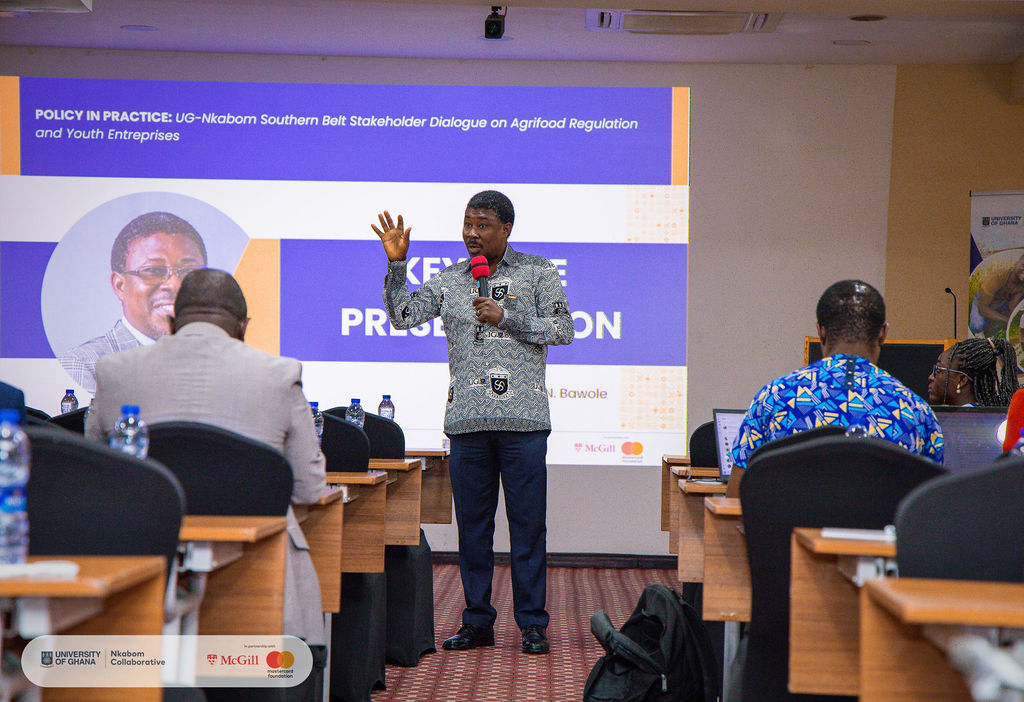
Delivering the keynote, the lead consultant for Policy Engagement and Regulatory Advocacy, Prof. Justice N. Bawole, underscored the timeousness of the Nkabom Collaborative initiative as a response to Ghana’s youth unemployment challenge and skills mismatch.
“Our economy hasn’t been expanding, and for me, this project has come at the right time to respond to some of the challenges we have been confronted with in terms of the size of our youth population and what they will do after school,” Prof. Bawole stated.
He stressed that regulatory hurdles remained a daunting terrain—citing prohibitive costs, complex paperwork, and the perceived unwelcoming posture of some agencies.
“Most start-ups are bootstrapping and apprehensive about the cost and process of securing documentation. When combined with complex paperwork, a litany of requests, and sometimes an uncooperative officer, it becomes a perfect recipe for disengagement—further swelling the already large pool of unemployment,” he cautioned.
Prof Bawole, who is the former Dean of the University of Ghana Business School, further intimated that, the conversations emerging from this forum had made it expedient to establish a dedicated desk at the UGBS Innovation Hub. This desk, he explained, would serve as a first port of call for addressing the teething inquiries and initial regulatory hurdles student start-ups faced. He added that a key lesson from the forum was the need for stronger collaboration across agencies. This, he explained, would help reduce overlaps, prevent duplication of efforts, and guide the initiative’s strategies going forward.
Key insights from the open dialogue included the urgent need for certification processes by the Food and Drugs Authority (FDA) and Ghana Standards Authority (GSA) to be more progressive and expedited.
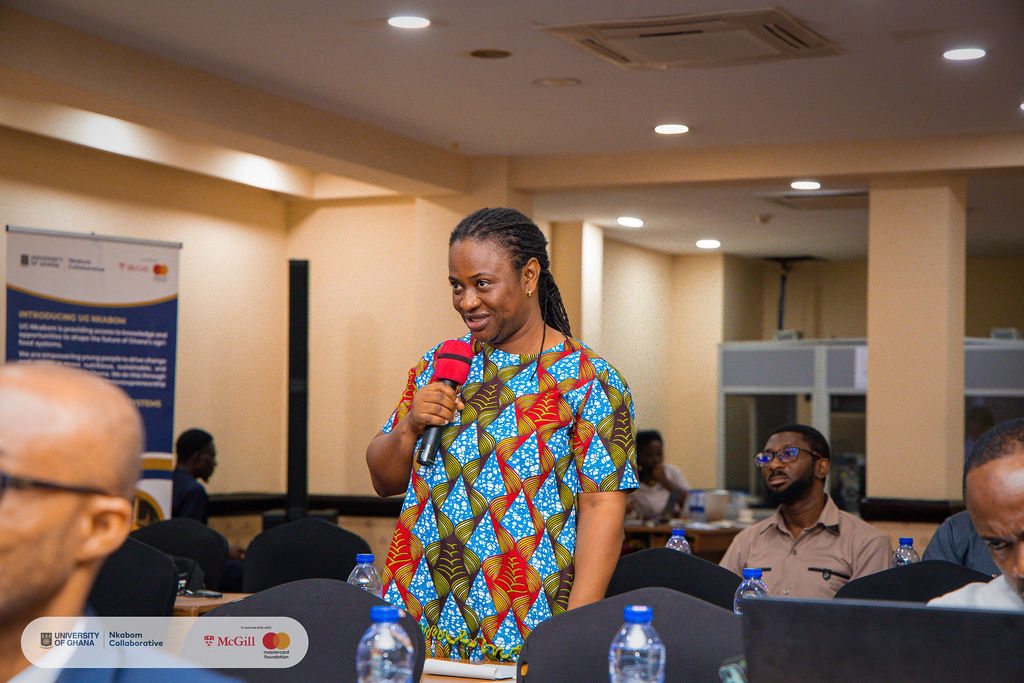
Delineating the mandates and purviews of the two institutions, a representative from GSA, Rachel Amanfu stressed: “GSA and FDA aren’t duplicating efforts in the exercise of their mandate. While there may seem to be some similarities, the latter regulates, while the former’s remit is to certify—except that for certain products GSA is mandated to regulate as well.”
Ms. Amanfu further assured participants that her Authority had created a conducive and business-friendly environment, staffed with officers actively working to meet the product-certification needs of businesses. “You don’t need to know anybody in GSA to certify your products. When you walk into our offices, our staff at the reception will expertly guide you to the appropriate unit or quarters for the assistance you seek.”
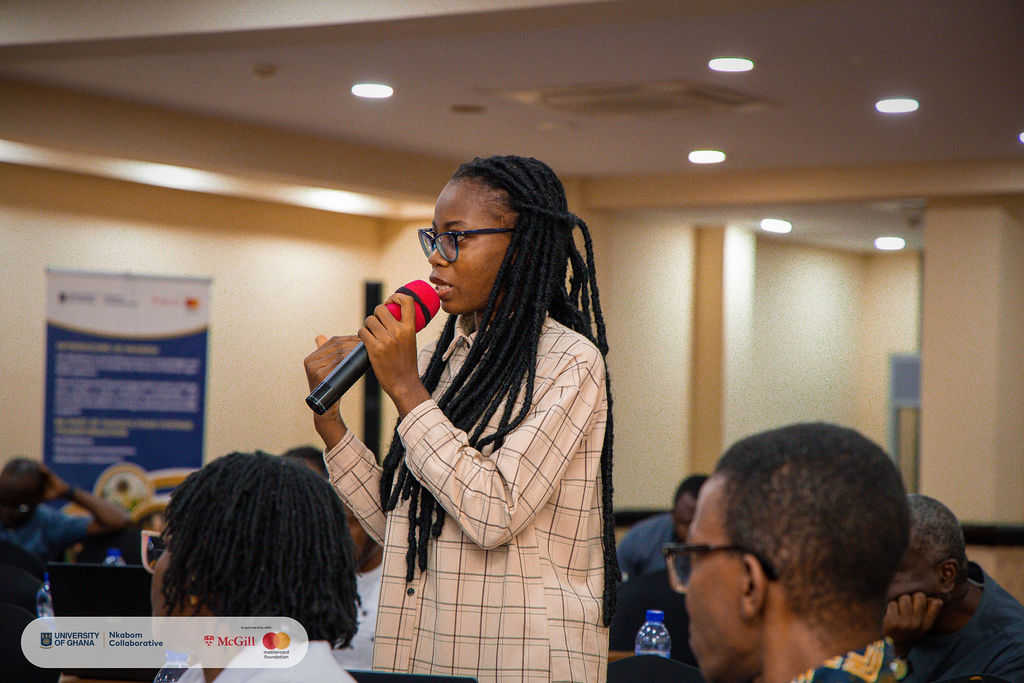
Another participant emphasised the need for regulators to better understand the unique characteristics and needs of startups under the Nkabom Collaborative. This, they explained, would make it possible to design communication materials, messages, channels, and touchpoints that truly resonated. “Digitising some of these processes, producing short explainers or videos, and using social media platforms is a sure way of making the process transparent and less stressful for most Gen Z–owned startups.”
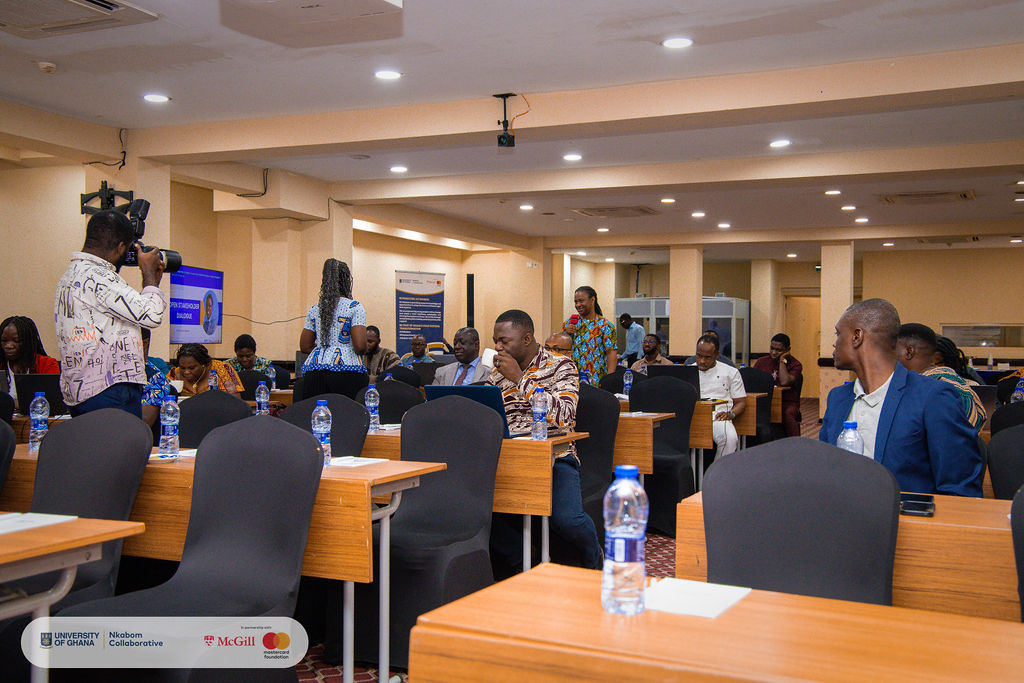
The Southern Belt Stakeholder Dialogue builds on an earlier engagement in Techiman, which explored ways of creating a smoother regulatory environment for agrifood startups in Ghana’s Northern Belt , under the UG Nkabom Collaborative.
So far, UG Nkabom has trained 161 youths in agribusiness entrepreneurship. Out of this, 100 startups have now been selected for mentorship and further scaling within the Entrepreneurship Pillar. The UG Nkabom initiative remains pivotal to building a transformed, youth-driven agrifood system in Ghana. This decade-long intervention—a collaborative effort of the University of Ghana, McGill University, and the Mastercard Foundation—centres on three core pillars: Education, Entrepreneurship, and Access & Success. Together, these pillars drive UG Nkabom’s mission to combine hands-on learning, business incubation, and targeted inclusion for women, persons with disabilities, and internally displaced persons.

